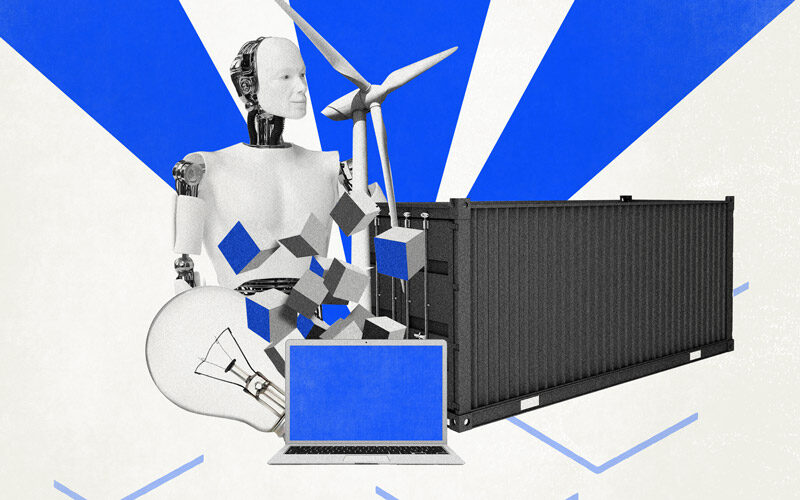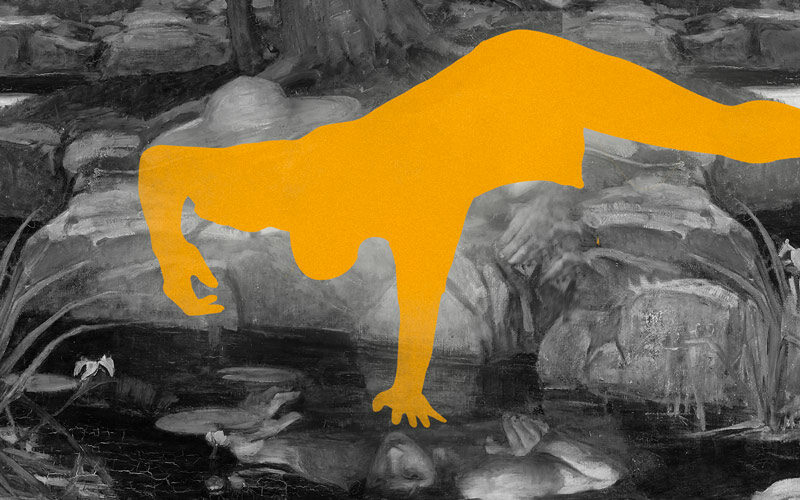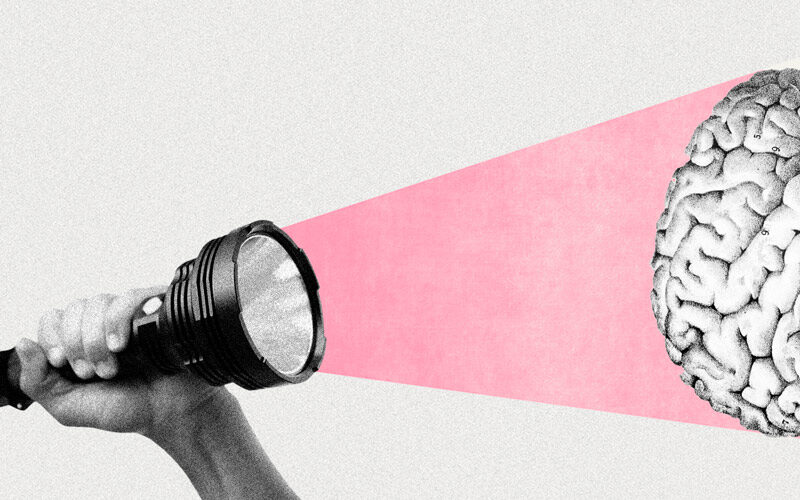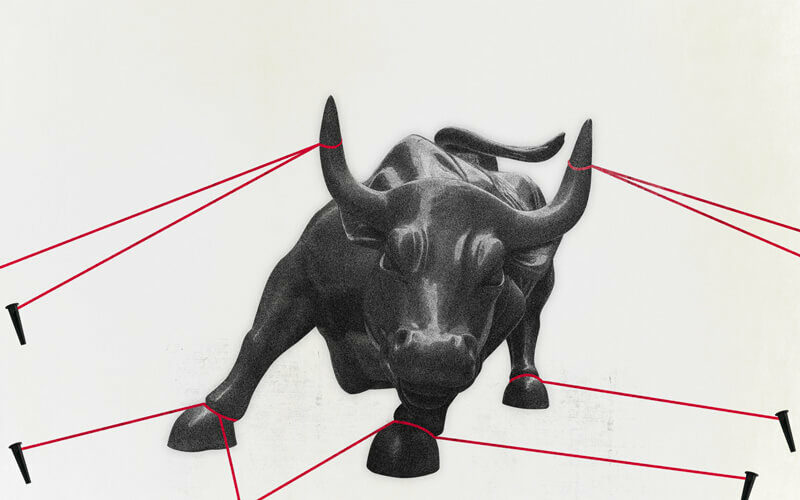Australia’s national science agency has declared the seven horsemen humanity will face over the coming decade.
And as the guys at the forefront of space exploration, disease eradication, and climate science, it’s usually worth listening to what they have to say.
In its once-a-decade missive, CSIRO predicts that the most significant factors affecting our communities, wellbeing, markets, and economies will be:
Climate change (of course), finite resources, escalating health challenges, geopolitical tensions, diving into digital, Artificial Intelligence (again, of course), and something it calls unlocking the human dimension.
1. Adapting to a changing climate
The 2020 bushfires brought things into screaming perspective for Australians. We’re already an eco-conscious country. Our arid climate and coastal exposure, as well as our economy’s reliance on agriculture and therefore predictable weather, mean we have more at stake than many.
Built into category number one is the cost of natural disasters, impacts on health, impacts on infrastructure, mass migration, the preparation we’ll need to live in a hotter world, and declining water availability.
Australia’s agricultural prowess makes us more equipped than most. But that same prowess, based on just how old these systems are, make us slow to adapt.
The earth is forcing our hand towards deep, systematic change and farming is having to adapt just as much as commerce, capitalism and computing.
Perhaps one of the most reassuring things about this report is that it’s not just about what needs to happen. It’s highlighting what’s already happening.
And Australia isn’t doing so badly.
Australian startups are leading the way across several of the trends.
Allegro Energy, composed of scientists from the University of Wellington and the University of Newcastle, has invented a water-based electrolyte system that makes batteries recyclable. Smart Paddock is helping farmers track their herds and predict weather conditions across our harshest and most remote lands. Farmbot helps farmers measure and analyse water use. And Curvecrete is building zero-waste concrete panels for the construction industry.
2. Leaner, cleaner, and greener
Global food demand is estimated to increase by 35-56% between now and 2050. As we lose arable land and biodiversity to deforestation and desertification, and as pollutive cattle farming declines in the face of growing veganism, this is an impossible equation.
Plant-based diets, meat substitutes, seaweed, insects, and deer hunting instead of cattle farming are all possible salves.
Australia is not doing so great on the leaner and greener side of things – yet.
Our greenhouse gas output ranks 14th in the world for carbon emissions, making up just over 1% of global emissions. Our waste per capita totals 1.5kg a day (compared to, for example, East Asia’s 0.6kg). Our landfill space could run out in 3 years.
CSIRO does name a few reasons to be optimistic. We have “the highest wind and solar capacity per capita across developed nations”, and “the necessary infrastructure, manufacturing skills and supply chains needed to develop advanced recycling”.
Basically, we can get ahead of this trend if we try.
And our homegrown startups are trying. Melbourne-based Conry Tech, inventors of the Turbocor compressor and BullAnt decentralised HVAC systems, are helping bring commercial buildings to net-zero. EcoJoule Energy is making community batteries and voltage regulators to drive the great electric switch. And Adelaide-founded Economical Energy is developing long energy storage solutions for renewable energy integration.
3. The escalating health imperative
In 2012, CSIRO’s third trend was ageing populations. They’d have been dismayed to know how much more serious this became in the face of the COVID-19 pandemic.
We won’t bore you by reciting the rolling effects of the pandemic you’ve probably read 100 other articles about. But one fact you might not have come across is that climate change increases the risk of infectious disease events.
When our ecosystems are intact, they help to protect us from pathogen transmission.
You might be noticing a trend here – there’s a link between all of these trends.
Antibiotic resistance plays into this one, as do sedentary lifestyles, declining sleep quality (increasingly common, and increasingly understood to be devastating for our health), and medicinal advances that prolong life decades past retirement age.
Continuing with our theme of reasons to be optimistic, Australia’s HealthMatch matches patients to clinical trials in real time, tailoring recommendations to their medical profile via AI to help get life-saving medicines on the market faster by streamlining the clinical trial process.
Mindset Health is developing hypnosis-based therapeutics for chronic health conditions like IBS, menopause, depression, and anxiety, working to deliver drug-free therapeutic solutions to patients’ homes. And Omniscient Neurotechnology is a data company aiming to radically change the way patients receive care by using AI technology to provide doctors with information at a much faster pace.
4. Geopolitical shifts
From Brexit to COVID to Trump to the war in Ukraine, the political world has seemed like a non-stop three-ring circus. This is nothing new. It just seems like times are more tumultuous because they’re “our” times.
But every time of change is different in its own way. Our world hinges on globalisation, digitisation, and interconnection – much more tenuously then we’d like to admit. Trade breakdowns and supply chain problems no longer just affect singular communities. They become global disasters.
For Australia, the potential economic ruptures this trend will cause lie with our trusted old two-way trade partners – or retreat thereof.
The pandemic saw trade between us and China down 2%, the United States 10%, and Japan 23.6%. Then in 2021, China introduced tariffs on our coal, food, and commodity exports. CSIRO is unable to predict whether the decline of the pandemic will repair the damage.
But what CSIRO has also identified is “increased collaboration between democratic countries”.
The Ukraine crisis has revealed “the cooperation, commitment and shared purpose amongst the world’s democratic countries” as well as an “unambiguous willingness-to-act at the national level to uphold international law, respect country borders/sovereignty and protect human rights”.
Finland and Sweden are joining NATO. AUSUK is creating tighter bonds between three of the anglospheres.
Maybe we’ll even see collaboration out-trend competition in business.
Aussie startups are innovating to fix the unfixable. Explorate challenges the archaic model of freight forwarding using apps and automation. Sydney-founded, cloud native ShippIt – now partnered with the Australia Post, TNT, and Mail Call Courier – provides smart delivery services for over 300 million businesses and merchants.
It’s becoming more and more obvious that there’s only one enemy, and that’s the threat to our natural world. Collaboration is the only way through.
5. Diving into digital
Web3, Industry 4.0, 6G, IoT, WFH – the abbreviations are proliferating faster than we can ask Siri or a member of Gen Z what they mean.
The technologies we already have “could contribute AUD $140–250 billion to Australia’s GDP by 2025”. We’ve invested $6 billion to help realise this, but we’ve still captured less value from tech than other leading economies.
E-commerce, SaaS, and remote work technologies are the obvious winners – as are suburban communities. With office attendance and therefore urban living now optional, remote workers are bringing their deposit savings and disposal spending to smaller towns, shifting the monolopic power away from CBDs.
Part of the ‘diving into digital’ trend is the shift to data-driven operations. There are huge advances – and revenues – to be made here. So far, only 24% of Fortune 1000 businesses identify as data-driven.
It’s a natural gap for startups to explore. Some leading examples include Culture Amp which uses data to collect insights on improving workplace culture and raise employee engagement. Nola uses CCTV to gather data on customer behaviour and movement. And Preezie uses first-party data to recapture the in-store magic for online customers, making ecommerce experiences more enriching.
If the 2010s were the age of the internet, this is the age of using data to make it better – and if used ethically, for everyone.
6. Increasingly autonomous
Conversations about reducing or replacing the human element always spark discomfort.
But at its best, Artificial Intelligence frees up employees to focus on more specialised parts of their job.
It could free us up in even more incredibly significant ways. What if humanity found a way to automate all of its work, so we could go back to pursuing leisure, gambolling in the forests, gathering berries, or whatever it is we do naturally?
Advances in deep learning and natural language programming have far exceeded where scientists thought we’d be. Linking in again with the previous trend, AI can allow us to analyse unimaginably huge datasets, which has possibly the greatest implications for business in terms of customising approaches, tailoring experiences, and improving and iterating responsively to customer demand.
AI is intimidating to some, but its use cases are truly beautiful. It can detect cancer, protect the Great Barrier Reef, and catalogue precious Aboriginal art.
The ways AI stands to influence the world range from the mundane (reporting traffic, predicting the weather) to the practical (tracking sleep, alerting sleepy truck drivers) to the transcendent (creating art and writing poetry).
7. Unlocking the human dimension
Gone are the glory days for brands and advertisers, who before ad regulation and the internet could say anything they wanted and sell products off the back of half-truths.
But that doesn’t mean they won’t try. Despite the information at our fingertips – and perhaps because of it thanks to misinformation spreaders like Facebook – the capitalism we live under means everyone’s out to make a buck, and the buyer must still beware.
Even as the paradigm shifts, there are only a handful of examples of true altruism under capitalism (raising the subject for another, much bigger article of if the two can possibly coexist). The sale of Patagonia being one.
Trust in Australian institutions has remained at a low since 2013. Between 2021 and 2022, trust in Australian businesses declined from 63% to 58%, and in the media from 61% and 43%.
Trust, good intent, transparency, social responsibility, ethical practices, labour rights, clean supply lines. Closing the pay gap (which still sits at 14.2% in Australia), diversifying workforces, levelling opportunity, and bettering things for people of colour.
It would be pretty gross to call these things “trends”, but these are the social endeavours brands and businesses will be held to account for over the next decade. Not necessarily because it’s the right thing to do, but because people have had enough of billionaires and bullying bosses and not being able to buy a house.
If you want to delve into the full report, you won’t be overwhelmed with doom.
There’s a lot of negativity in the news, and plenty of reasons to bury our heads in the sand. But climate doomism isn’t getting us any further than climate change denial.
These 7 global megatrends are perhaps not the seven horsemen, but seven avenues of hope.
The overarching message CSIRO seems to be delivering is that we still have a world, and a chance to change it if we try.










